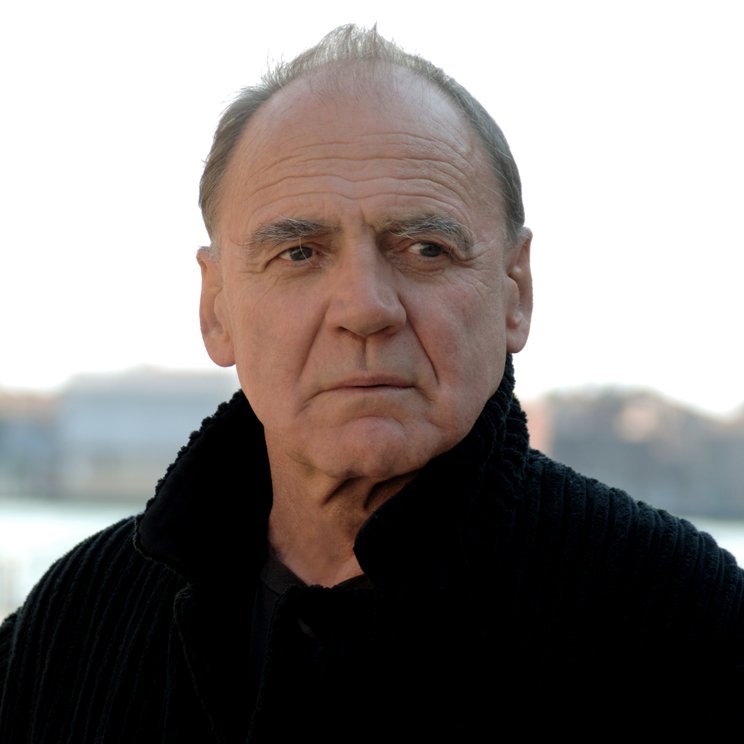
Bruno Ganz
Vita
Born in 1941 in Zurich, Bruno Ganz left school before completing his high school diploma to study acting at the University of Music and Theater in Zurich. By 1960 he landed his first film role in Karl Suter’s Der Herr mit der schwarzen Melone; he became a member of the Young Theater in Göttingen in 1962 and, in 1964, of Bremen Theater. There he began his collaboration with such directors as Peter Zadek, Kurt Hübner, and Peter Stein; it was especially Stein’s staging of Goethe’s Torquato Tasso, in which Ganz played the title hero, that made him a “star” for a new generation of theater lovers. From 1971 to 1975 Ganz was a member of the legendary Berliner Schaubühne ensemble; in 1972 he took part in the world premiere of Thomas Bernhard’s Der Ignorant und der Wahnsinnige at the Salzburg Festival and was named Actor of the Year for his performance. In the mid-1970s he began to devote himself increasingly to film, appearing in such movies as Wim Wenders’s Der amerikanische Freund and Werner Herzog’s Nosferatu. He acted for such directors as Volker Schlöndorff, Jonathan Demme, and Francis Ford Coppola, working with colleagues from around the world, including Laurence Olivier, Isabelle Adjani, Burt Lancaster, Isabelle Huppert, Peter Falk, and Gérard Depardieu. At the same time, Ganz intermittently returned to the theater stage, in Berlin, Salzburg, and Vienna, performing in such productions as Peter Stein’s 21-hour-long staging of Goethe’s complete Faust. He has received many awards for his creative work, including the German Film Award, (1976), the “Chaplin Shoe” Award (1979), the Grimme Award (1999), and the European Film Award (2000 and 2004). In 1996 he became the bearer of the Iffland Ring, which is awarded “for life to the most significant and deserving theater artist of the German-speaking theater.”
LUCERNE FESTIVAL debut on 18 August 2002 as Bassa Selim in Mozart’s Die Entführung aus dem Serail conducted by David Stern.
March 2014